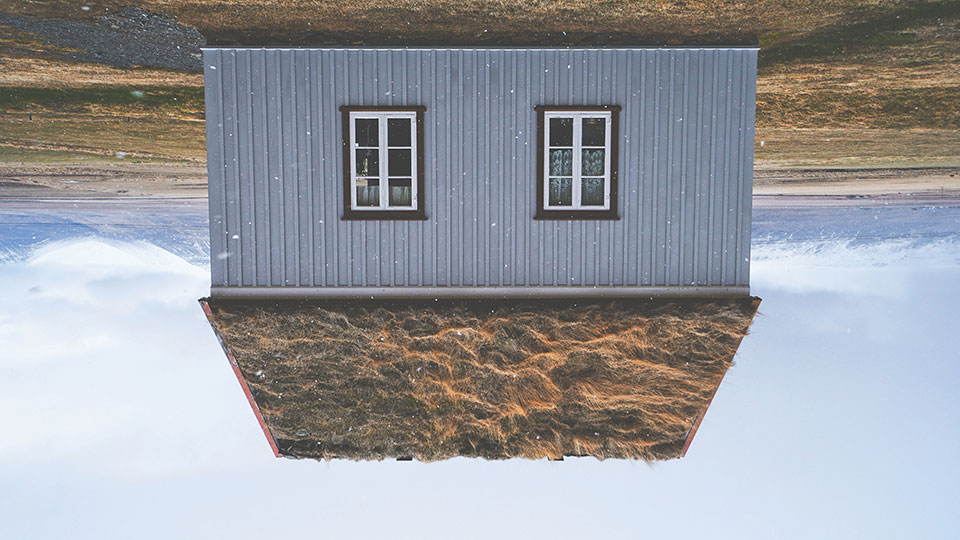Unhomed

W
hen asked to contribute to a speculative fiction folio, I noticed only afterward I’d picked two tales that revolve around houses. Freud would say I protest too much. (I am merely grateful his list of impossible things—to govern, to teach, and to cure—does not include translation.) The house in every incarnation from crumbling castle to suburban abode, whether with skeletons in the closet or hearts beneath the floorboards, is a mainstay of the fantastic, locus of ghosts and seat of the self. The French fantastique as a genre is bound up with the word étrange of whose supernatural suggestion our “strange” retains but an attenuated echo (“estrangement” preserves some of the alienating force, though not its vector). And so étrange in this context is generally rendered as “uncanny,” both of which are standard for the German unheimlich—literally, “unhomely.” These words, each with their own origins and baggage, triangulate a concept that derives its lasting power from its very impalpability, but it is to translation that we owe their collusive proximity.
Home: you can’t go back again, but when you do, they have to take you in . . . or not. In his history of French fantastical literature, fantasist Marcel Schneider called Kafka a “delay-action bomb”: the impact of Alexandre Vialatte’s translations extended far beyond their first appearance in the 1930s. The titular structure of Pierrette Fleutiaux’s tale (page 43), which updates the age-old gingerbread cottage to modern “independent senior living,” keeps its narrator daughter out as implacably as Kafka’s gate before the law. It is no diminishment to say the fable in Fleutiaux’s hands is “brought home”: father swapped for mother, the urban for the personal, chilly omneity moderated by wry rue. At the end, no light blinds; life goes on.
First hailed as the new female hope for the French fantastique—in an admiring preface to her debut novella, Julio Cortázar likened her to Leonora Carrington and Remedios Varo—Fleutiaux initially disavowed the label, branding her stories realist because she wrote of “ordinary things everyone knew about.” “The House” dates from her first collection in 1976; by the time of its 2003 reprinting, Fleutiaux herself contributed a preface claiming Calvino as a model and coming around to the label fantastical for “lack of anything better.”
By 1995 Anne Richter had already included Fleutiaux in the second edition of her anthology Le Fantastique Féminin (the 1977 version only went as far as Patricia Highsmith). Richter’s introductory essay begins by quoting Lise Deharme, surrealism’s Lady of the Glove and Queen of Spades, herself a noted ghost-story writer: “A chair can start putting forth buds in any atmosphere that suits it.” The female fantastic was at once spontaneous and concrete, combining interiority with materiality. Developing from Ann Radcliffe, Emilia Pardo Bazán, and Vernon Lee, it moved away from explanation and mechanism toward instinct and transformation, ambiguity not merely ambient but embodied. Richter avoids essentializing femininity; her approach is descriptive, not prescriptive, and above all inclusive; several authors she features have yet to make it into English.
Proponents of the social novel have accused fabulism of a reluctance or failure to engage the contemporary big picture in all its realist particulars, as if imagination were a retreat and metaphor a surrender, but it is perhaps in paring specifics away, cleaving close instead to some bone truth, that fables find their haunting perennity. If, four decades after it initially lent its name to her second collection, it is now possible to read “The Tenants” as a parable of the refugee crisis, that is only a testament to its roominess. As Homi Bhabha wrote, “the unhomely moment relates the traumatic ambivalences of a personal, psychic history to the wider disjunctions of political existence.” Unhomed from their native tongues, these stories now speak, across borders, of abiding unsettlements.
Editorial note: Read Gauvin’s translation of Fleutiaux’s “The House” and his translation of Richter’s “The Tenants.”










